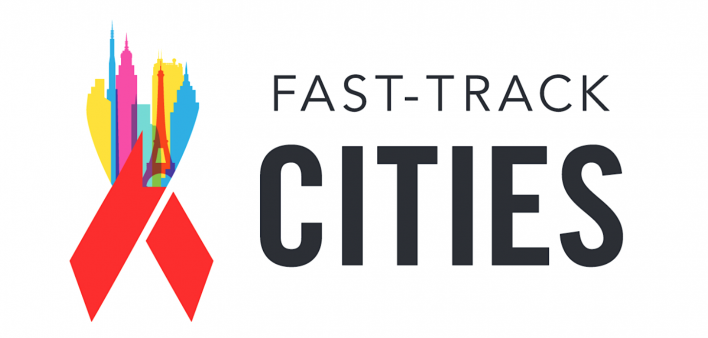Cleveland and Baltimore are the latest U.S. cities to join the Fast-Track Cities initiative to advance the global goal of ending HIV. They also signed the latest iteration of the Paris Declaration, a document produced to help govern the Fast-Track Cities initiative. The latest version of the declaration integrates new commitments and targets to end HIV by 2030.
The Fast-Track Cities initiative is a partnership that includes 500 cities around the world and global HIV organizations with the goal of ending HIV in urban settings by 2030. The initiative was spearheaded by the International Association of Providers of AIDS Care (IAPAC), the Joint United Nations Programme on HIV/AIDS (UNAIDS), the United Nations Human Settlements Programme (UN-Habitat) and the City of Paris.
By signing the latest version of the Paris Declaration, Cleveland and Baltimore reaffirm their continued commitment to end HIV and support residents who have been diagnosed with and affected by HIV.
“The City of Baltimore remains committed to the objectives of the Paris Declaration on Fast-Track Cities Ending the HIV Epidemic that city officials signed in 2015—and I’m proud to be reaffirming that commitment by signing the most recent iteration today,” Mayor Brandon Scott said in a Baltimore City news release. “Together, we can move towards eliminating this epidemic, while also erasing inequities fueled by racism, homophobia, transphobia and other factors that continue to make people vulnerable to stigma and social marginalization.”
Lita Wills, the commissioner for health equity and social justice for the Cleveland Department of Public Health, said in an Axios Cleveland article that becoming a Fast-Track City is “the culmination of the determination of everyone in this room and thousands more who are using this moment as a springboard to set lofty goals and hold ourselves accountable, to create more miracles in our lifetime."
The newest version of the Paris Declaration includes a 95-95-95 strategy, an increase from the original 90-90-90 plan. This updated strategy aims to get:
- 95% of people living with HIV to know their status;
- 95% of people who know their HIV-positive status on antiretroviral therapy; and
- 95% of all people on HIV meds to attain viral suppression, also referred to as undetectable.
People with HIV who achieve and maintain viral suppression experience slower disease progression, enjoy better overall health and are less likely to develop opportunistic illnesses. What’s more, people with an undetectable viral load don’t transmit HIV to others through sex (a fact referred to as treatment as prevention or Undetectable Equals Untransmittable, or U=U).
“Attaining these [95-95-95 targets] will place us on a trajectory toward getting to zero new HIV infections and zero AIDS-related deaths,” the declaration reads. “Working together, cities and municipalities can accelerate local actions toward ending the HIV, tuberculosis and viral hepatitis epidemics globally by 2030.”
To learn more, click #Fast Track Cities. There, you’ll find headlines such as “How to Take Back Control of Your HIV, Health and Self-Worth [VIDEO],” “10 Ways City Health Efforts Can Include People With HIV, TB and Hepatitis” and “How Did 12 U.S. Cities Do in Reaching Their 90-90-90 HIV Goals?”
In related news, José M. Zuniga, the president and CEO of IAPAC and the Fast-Track Cities Institute, penned a POZ blog titled “Welcome to the Zero HIV Stigma Blog” to mark the inaugural Zero HIV Stigma Day.







Comments
Comments